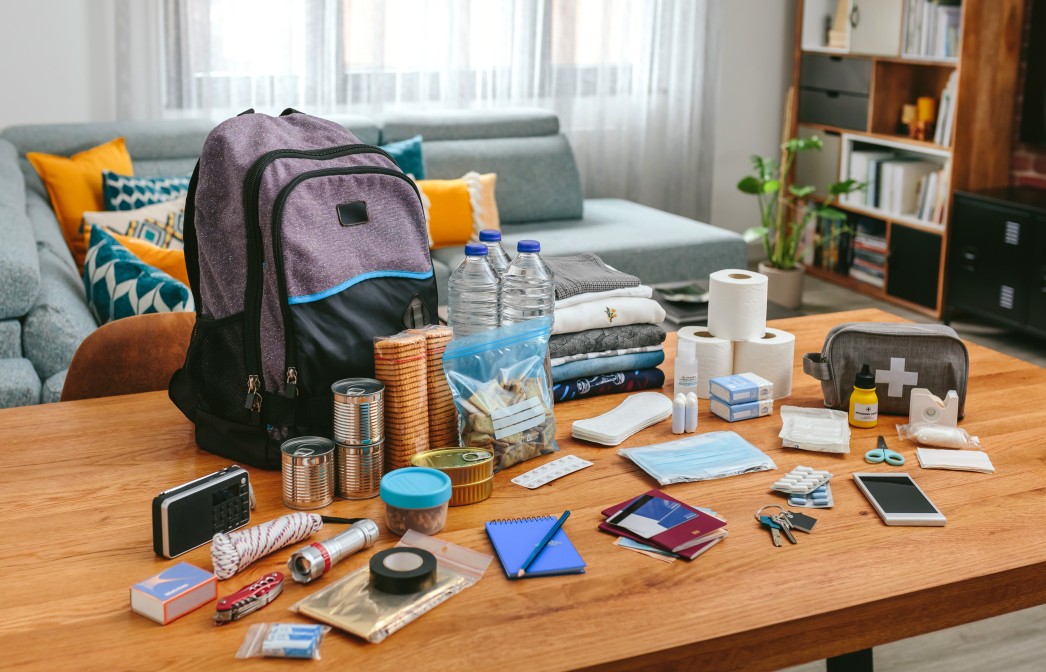
Heavy Rain, Flooding, and Chance of Severe Weather Staring Down the Southern U.S.
January 22, 2024
Posted: September 3, 2021 3:57 pm





Severe storms are becoming more frequent and more devastating in the United States, bringing with them widespread flooding, catastrophic destruction, lengthy power outages, and potentially trapping people in their homes.
In addition, major natural disasters are increasingly hitting areas that seldom have experienced severe weather events such as massive flooding, tornadoes and hurricanes in the past.
They also are no longer confined only to certain times of the year.
Often storms can build with short notice, giving people little time to take preventative action.
Yet six out of every 10 American households are likely to be caught unprepared when a storm hits, according to a new survey by Farmers Insurance. Too many people simply fail to have emergency plans ready for the devastation that can occur.
The survey also found that:
• More than a third of Americans say that are not confident they will be able to financially rebound from a natural disaster.
• Half of Americans do not have an emergency kit that they have prepared and is ready for use.
• Seven out of 10 pet owners do not have a pet-specific emergency kit available.
• Half of Americans who have gone through a natural disaster as adults surprisingly still have not put together an emergency plan for the next one that might hit them.
Residents are urged to make preparations well in advance of a natural disaster. Doing so not only will help them survive the storm in good shape, but also will help to reduce the suffering—and even death—that a severe storm can cause.
Here are tips from Farmers Insurance to help you take action long before a storm is headed your way:
Your kit should be a collection of those items your household will need to survive in the event of a severe weather emergency. Remember that you and your family might need to manage for some time entirely on your own resources. The power is likely to be out and water supplies might be cut.
Your kit therefore should include such items as water, food, a battery-powered radio, a first aid kit, batteries, and a cell phone.
You might also want to stock up on camping equipment, such as a propane stove and battery or propane lanterns, that will help you cope.
In short, think of what you would need were you and your family forced to survive without power or water for an extended period of time. Remember, you will not be able to go out and buy those items once the storm hits.
Also put together items that you will want to take with you when you have to evacuate; you do not want to waste time looking for them before you leave.
After a disaster, systems are down and so many places will not be able to take credit or debit cards, says Chris Seever, an underwriter at Farmers Insurance in Kansas City, Missouri. ATMs also might not work.
It is important to have cash on hand that you can use when you are able to get out so you can obtain gasoline, supplies and food that you will need, he adds.
Such a plan will include knowing where your family will shelter if required to evacuate your home, which escape routes you will use from your house and your neighborhood, where you will meet, and how you will communicate with one another if you are separated from one another.
Build an emergency kit for your pets. Included should be two to three weeks supply of food, a leash, water, and, if relevant, a litter box. Also include prescription refills, medication, bedding, and toys to help them stay calm.
Here are tips on what you should do when the storm hits.
If you are told to evacuate or if you decide to do so on your own, move as quickly as possible.
Flooding might be likely that could affect possible evacuation routes. Get out as quickly as possible before that happens.
If instructed to do so, or you are evacuating your residence, turn off your electricity, gas, and water.
Even if you turn off your electricity, make sure that appliances such as computers, stoves, microwaves and television sets are unplugged. When the power is restored, surges in power could seriously damage your electronic devices.
You should, however, keep the refrigerator plugged in. Should the power outage be only for a relatively short time and you have left your house you will want your refrigerator to be up and running once the power is turned on, even though you might not return home for some time. A refrigerator is less likely to suffer from a power surge.
If you do not evacuate your house, stay inside. Keep away from doors and windows until the storm passes. Lock those doors that give access to the outside and close those doors that are internal.
The Institute for Business and Home Safety suggests that you should find shelter in an interior room, hallway or closet during the height of the storm. If your residence is in a high-rise building, seek shelter below the tenth floor.

January 21, 2024

January 19, 2024

January 18, 2024